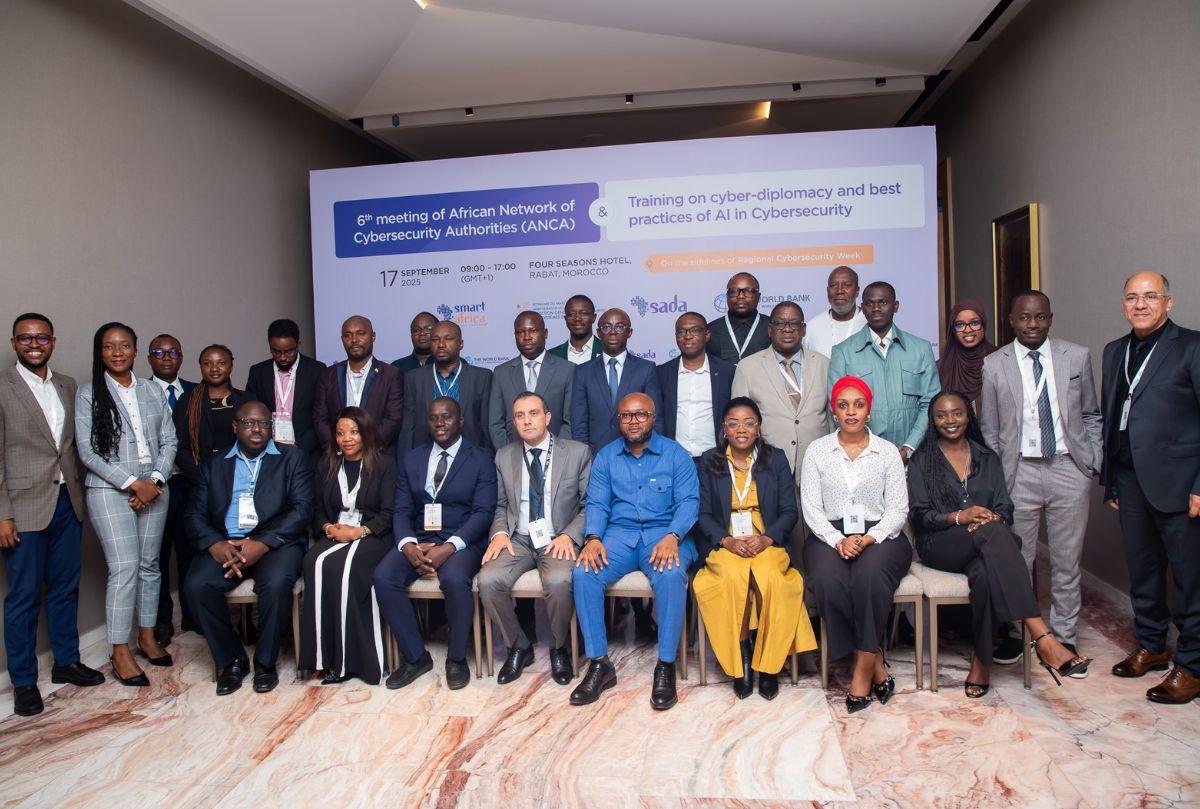ANCA Grows as Six Nations Signal Intent to Join, Driving Innovation and Regional Cybersecurity Cooperation
This significant development underscores ANCA’s growing relevance as a continental platform for cybersecurity collaboration and policy dialogue.

The African Network of Cybersecurity Authorities (ANCA) continues to draw continental interest, as six new countries: Eswatini, Uganda, the Democratic Republic of Congo (DRC), Somalia, Zambia, and Zimbabwe expressed intent to join the network of 21 members, during the 6th ANCA Meeting, held in hybrid format on 17th September 2025 in Rabat, Morocco.
This significant development underscores ANCA’s growing relevance as a continental platform for cybersecurity collaboration and policy dialogue. The meeting convened national cybersecurity authorities’ leaders from 22 countries, both members and special guests, as well as partner organizations.
Leadership renewed, commitment reinforced
In a demonstration of trust and continuity, Ghana was re-elected as ANCA Chair, and Morocco as Vice-Chair, both for a new two-year term from November 2025 to November 2027.
During the meeting, members and partners reviewed progress made in key areas and outlined future priorities, reinforcing their commitment to tackling cyber threats through coordinated action.
Divine Selase Agbeti, Director General of Cyber Security Authority Ghana and ANCA Chairman, emphasised that the cross-border nature of cybersecurity underscores the vital importance of the alliance.
“The alliance is very important because cybersecurity transcends borders. No single country can fight it alone. We need to team up with one another to find solutions for ourselves.”
-Divine Selase Agbeti, Director General of Cyber Security Authority, Ghana and Chairman, ANCA
Speaking on behalf of Director General/CEO Lacina Koné, Calvain Nangue, Strategic Advisor for skills development at Smart Africa highlighted that a secure cyberspace is essential in attracting investments in the digital sector.
“Let’s remember that every investment in broadband, digital ID, cloud infrastructure, smart cities, agri-tech or e-payments is only as strong as the trust and resilience of the cyberspace in which they operate.”
-Calvain Nangue, Strategic Advisor for Skills Development, Smart Africa
Driving innovation, intelligence sharing and capacity building
Participants took note of the scale-up plan for the Cybersecurity Innovation Center (CIC) pilot project in Côte d’Ivoire, with several countries expressing keen interest in establishing similar centers in their respective regions. The initiative aims to create localized hubs for cybersecurity innovation, knowledge exchange, and incident response.
ANCA members and partners also took note of the progress and updates of the establishment of ANCA-CERT in Morocco and accepted to support its implementation.
“ANCA is a powerful tool for development, and we want to reiterate our commitment, support and contribution to ANCA operational activities in the establishment of a regional ANCA-CERT that will be hosted in Morocco and serve all ANCA members.”
-Brigadier General Abdellah BOUTRIG, Director General of Morocco DGSSI (Direction Générale de la Sécurité des Systèmes d’Information) & Vice-chair ANCA
After the meeting, a training session on cyber diplomacy and AI best practices, facilitated by SADA WARDIP and the World Bank, strengthened the institutional and technical capacities of national cybersecurity authorities in addressing the evolving cyber threat landscape and leveraging AI for enhanced resilience.
“Capacity building must remain a priority. Our weakest link is our biggest risk and by strengthening it, we uplift our entire cybersecurity posture as Africa.”
-Sarah Ahura, Head of Governance and Risk, National Information Technology Authority (NITA), Uganda
The participants were also informed of ongoing program, in partnership with USTTI, on empowering women in cybersecurity leadership currently taking place in US and next month in Saudi Arabia.
Progress on monitoring & evaluation framework
Another key agenda item was the ongoing development of the continental Cybersecurity Monitoring & Evaluation (M&E) Framework. Members were briefed on the work done so far and called upon to actively engage in its implementation and provide support to ensure a robust and sustainable monitoring mechanism across Africa.






